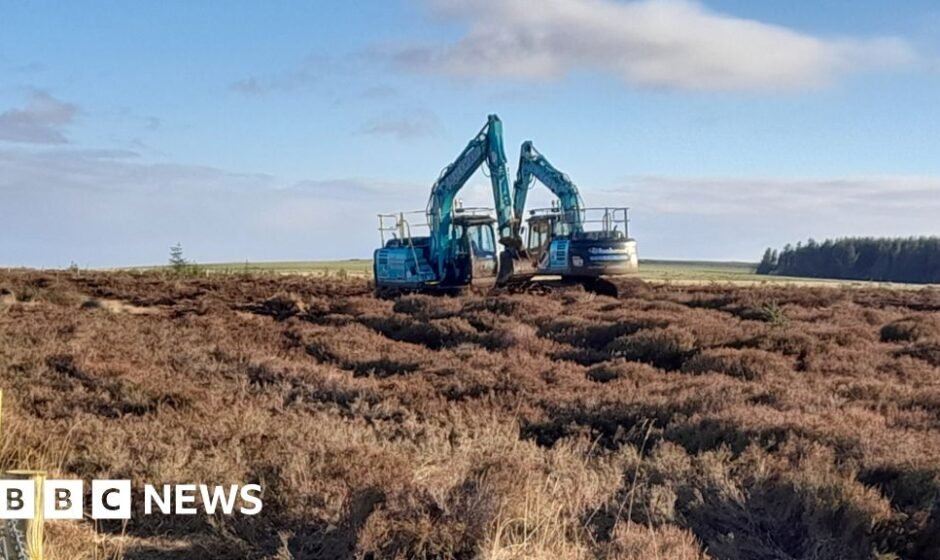Northumberland Forest Land Restored to Peat Bog to Combat Climate Change
Acres of forest land in Northumberland have been transformed into a peat bog as part of efforts to mitigate climate change. The restoration project, led by Groundwork North East & Cumbria, aims to store carbon, filter water, and enhance biodiversity.
The Harwood Forest area, which was previously cleared of native wildlife in the 1950s for timber planting, has now been restored to a vast expanse of rewetted deep peat. Peat is considered one of nature’s most effective tools in the fight against climate change.
In total, eight hectares (19 acres) of land have been converted into bog, providing an ideal habitat for sphagnum mosses, bog rosemary, and cranberry to grow and decompose, thereby creating more peat.
Michele MacCallam, project manager at Groundwork, expressed hope that the positive results would inspire similar initiatives in other locations. The restoration work will be closely monitored by Natural England and Forestry England for the next decade to assess its effectiveness.
However, Forestry England cautioned that previous timber planting had affected the land and it remains to be seen if the restoration project has resolved drainage issues. Richard Guy, Forestry England’s Peat Specialist, emphasized that the development of deep peat takes a long time, and restoration cannot be rushed.
The restoration project received a £10,000 grant from Hexham-based Vattenfall Company through donations to Ray Wind Funds. Additionally, the government-sponsored Nature Returns program contributed £41,000, which will also fund Groundwork’s wider Wansbeck Restoration for Climate Change project.
To stay updated on the project, follow BBC North East on Facebook, Twitter (now known as X), and Instagram. For story ideas, contact northeastandcumbria@bbc.co.uk.




